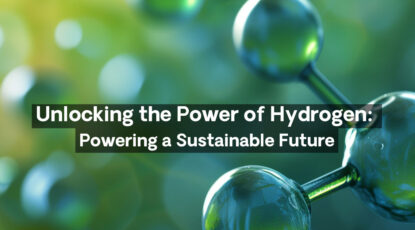Bloom Energy’s Executive VP & CMO, Sharelynn Moore, recently moderated an expert panel discussion at the Reuters Global Energy Transition 2021. The event unites leaders and change makers from across the public and private sectors to shed light on the defining issue of our time and tackle the energy transition head on.
Below are highlights and key takeaways from the discussion titled Unlocking the Global Hydrogen Economy featuring respected industry leaders:
- Sharelynn Moore (moderator)
- Daryl Wilson – Executive Director at Hydrogen Council
- Hitoshi Kaguchi – Mitsubishi Heavy Industries – Executive Vice President
- Marcelino Oreja – Chief Executive Officer at Enagás
Key Takeaways
The expert panelists discussed many relevant issues and critical scenarios to the success of hydrogen in the modern economy. Below are a select few of their many salient points.
- Unification Around a Common Goal
- Integration is Critical to Hydrogen’s Success
- Current Hydrogen Projects Will Help Pave the Way
- Transportation Will Be Critical
- Investments in Hydrogen Technology Levels the Playing Field
Unification Around a Common Goal
The discussion kicked off with a clear and unifying statement from Moore “First, let me say reducing carbon emissions is the number one fight against climate change and protecting our planet. There is no way to get to net-zero without hydrogen.”
Moore went on to state other critical statistics “by 2030, the world energy needs are expected to be 10% or larger than pre-COVID levels. The increased demand alone is 714% of current wind and solar energy capacity, a complete transition to renewables will require trillions of dollars and take decades. But we cannot take that long. We must accelerate deployments and advanced hydrogen production and utilization for the global hydrogen economy.”
Integration is Critical to Hydrogen’s Success
Wilson echoed many of Moore’s feelings by saying, “Sharelynn you mentioned that there is no getting to net-zero without hydrogen, and I hope, through our panel discussion today, that it will be evident to the participants in this session. Hydrogen is just so critical to bring our energy system together in an integrated way.”
Wilson continued with his thoughts on integration when he added, “we sometimes talk about sector coupling all the various different ways that we use energy can be brought together in a holistic energy system like we’ve never seen before. Green electrons and carbon-free hydrogen can indeed make the world go around in a sustainable way, and that’s a bold claim, but I think as we unpack our discussion today, uh, we’ll see why that is indeed the case.”
Current Hydrogen Projects Will Help Pave the Way
One of the key components for a successful hydrogen future will be hydrogen-related projects in the near future. 2022 will see multiple hydrogen infrastructure projects built by Oreja’s company, Enagás, “We need real projects to happen in our case, as Enagás, we are building infrastructure in Europe, in Canada, Majorca Island that will provide 300 tons of hydrogen next year, 2022. This is going to be the first big project in the south part of Europe. I would say big because it’s a bigger one in place. It seems very small within everything we are announcing, but that’s going to be the first one. We’re going to see how much we can drop the price now. So this is going to happen. We’re going to see products coming in 2022 and 2023, and I think we’re going to see big projects for this region in 2025 and above.”
Transportation Will Be Critical
The implementation of hydrogen solutions also has to take into account that hydrogen produced in different countries around the world comes with different price tags. Dr. Kaguchi offers valuable insights on production costs and potential transportation solutions. His summarized insights are as follows: The situation of Japan is slightly different from Europe. The current price of hydrogen in Japan is roughly $10 per kilogram. The future targets hydrogen at $3 per kilogram in 2030, and in 2050 $2 per kilogram. It’s expensive in other areas because it’s very difficult to generate hydrogen inside of Japan. We have to import the hydrogen from areas with more green energy capabilities. We need hydrogen transportation and it’s a reason why hydrogen is expensive. Even if hydrogen technology will be ready by 2030, the social or economic system, the realistic system, may not be achieved by 2030.
Investments in Hydrogen Technology Levels the Playing Field
Later in the panel discussion, Wilson highlights the need for investment in hydrogen technology, “The critical thing that needs to happen is investments in scale-up. Our other panelists have spoken about projects that they are undertaking to indeed realize the scale-up of hydrogen deployment. And as that happens, we get good effects in the supply chain, the economies of scale innovation, and technology improvements. And we start to reach into areas where hydrogen indeed becomes directly competitive with other energy alternatives.”
Parting Thoughts: Final Destination via Cooperative Innovation
The panel discussion wrapped up with a unifying statement from Wilson regarding the future of hydrogen, “We’ve been heading in the hydrogen direction for a long time. If you look at burning wood and oil and coal and natural gas, what’s been happening for many, many decades is less and less carbon and more and more hydrogen in our energy sources. And now we’re kind of arriving at the final destination, pure hydrogen. Indeed. There’s a lot to learn about this discussion, but it’s critically important and urgent that we do learn, and we do work together. I think the wonderful thing about hydrogen is that together, working across all these different sectors and the examples that have been shared by Mitsubishi, and Enagás, depicts the importance that we come together and innovate together and capitalize on the opportunity of finally putting our energy system back together with hydrogen.”
Is your organization interested in learning how to unlock the hydrogen economy? Access our whitepaper here.



